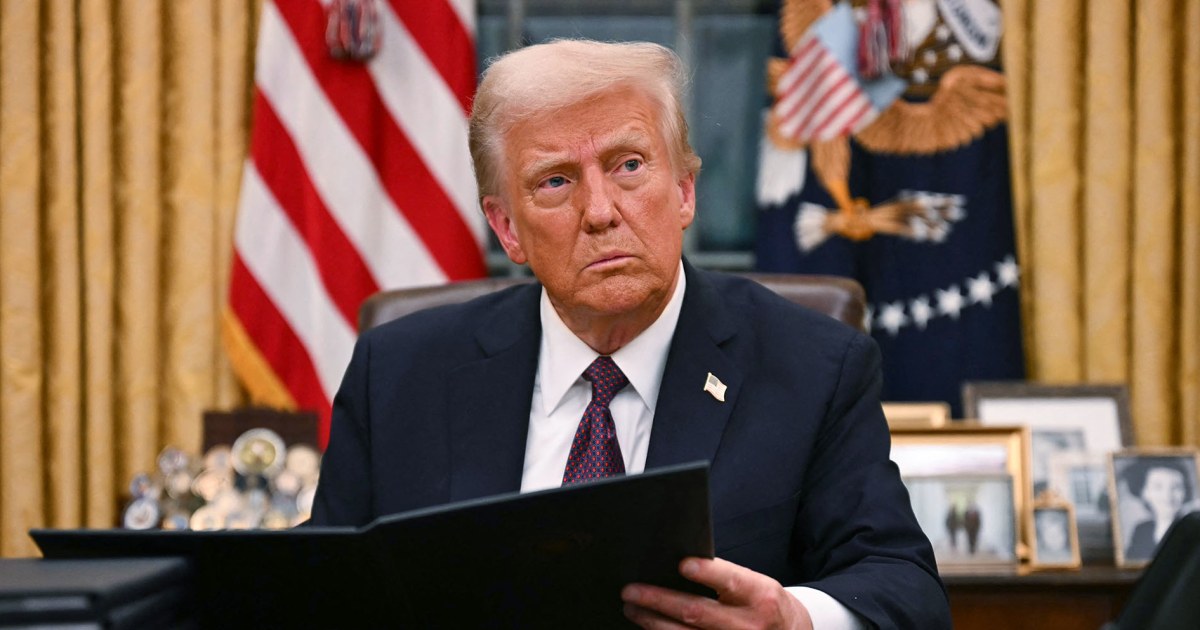Summary
The White House is drafting an executive order to dismantle the Department of Education, aligning with Trump’s long-standing pledge.
However, Congress must approve the agency’s abolition, making its passage unlikely despite GOP control. Critics, including the National Education Association, warn this move would harm students, increase costs, and weaken protections.
GOP lawmakers have repeatedly attempted to eliminate the department since its 1979 founding.
Trump also recently signed an order expanding school choice, reinforcing the Republican agenda of decentralizing education policy.



You’re wrong. They will not wait for Congress to do anything.
Who the fuck is going to stop them, you?
The courts, actually. Been there since Nixon tried similar stunts. Administrative state’s got more staying power than most realize. But hey, doom scrolling’s more fun than reading SCOTUS precedents.
Oh, the SCOTUS that said anything done by a sitting president is automatically legal? That one?
Ah, you mean the unitary executive theory? That magical interpretation where presidential power is somehow absolute? Fascinating how selective that reading was—worked great for executive orders, not so much for criminal immunity.
The courts have been remarkably… flexible with precedent lately. But even in this twilight zone version of constitutional law, there’s still that pesky difference between issuing orders and having them actually implemented. The machinery of state has its own peculiar physics.
Though I suppose when SCOTUS is rewriting administrative law on the fly, precedent becomes more of a suggestion than a rule. Welcome to the constitutional speedrun era.
They will physically remove people from their jobs if it comes down to it, regardless of the legality of the order. You really don’t seem to get it.
Physical force is amateur hour thinking. You can march people out at gunpoint, sure. Then what? Who runs payroll? Maintains infrastructure? Implements policy? Even dictatorships need functioning bureaucracy.
But keep thinking might-makes-right while actual power plays happen in budget meetings and administrative procedures.
Nobody runs payroll, my dude. They want it to fail. They’ve spelled it out in Project 2025, the entire point is “dismantling the administrative state,” and they’ve shown every single day in the past two weeks, that they are doing exactly that.
Until people accept the reality of the situation, it’s just going to get worse.
We already have precedent for a president ignoring a SCOTUS decision (Andrew Jackson).
Does the Supreme Court have some kind of secret police force that makes sure the other two branches of the government follow their rulings?
In fascism, might makes right, and the person with the biggest guns/army gets what they want, or else they just fucking kill you.
Jackson’s precedent created a constitutional crisis that haunted executive power for generations. But let’s ignore history because “guns solve everything,” right?
And no, SCOTUS doesn’t need secret police when they have the entire administrative state’s inertia. The machine keeps running because people show up, file papers, and follow procedure—not because someone’s pointing weapons.
Eh? Do you think I was agreeing with Jackson (or in this case Trump), or condoning it?
It’s just history.
Speaking of history, it seems like you need to learn some things (or refresh your memory). Because this is exactly how society has always worked. The majority of human civilization has been this.
Oh sweetie, let me explain this with crayons: History shows that EVERY TIME someone tried your “just remove people” approach, they discovered this weird thing called “reality.” You can’t run a modern state with just guns and machismo.
You know what happened when your heroes tried that? The trains stopped running. The power grid failed. The sewage backed up. Because—surprise!—it turns out those boring bureaucrats actually DO things. Important things. Like making society function.
But please, tell me more about how you’ll “physically remove people.” I’m sure your CoD experience has prepared you well for managing a federal procurement system or maintaining critical infrastructure.
This isn’t your high school parking lot. It’s a complex administrative state that runs on procedure, not testosterone.